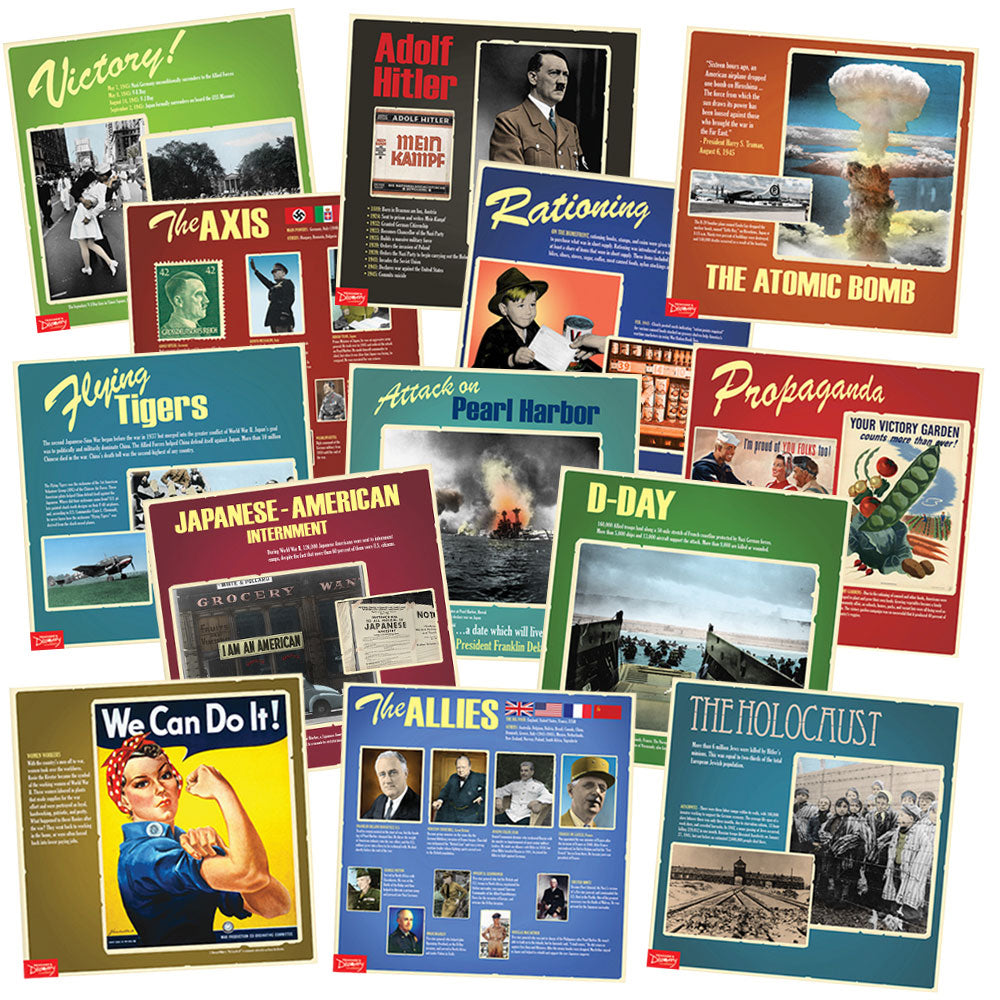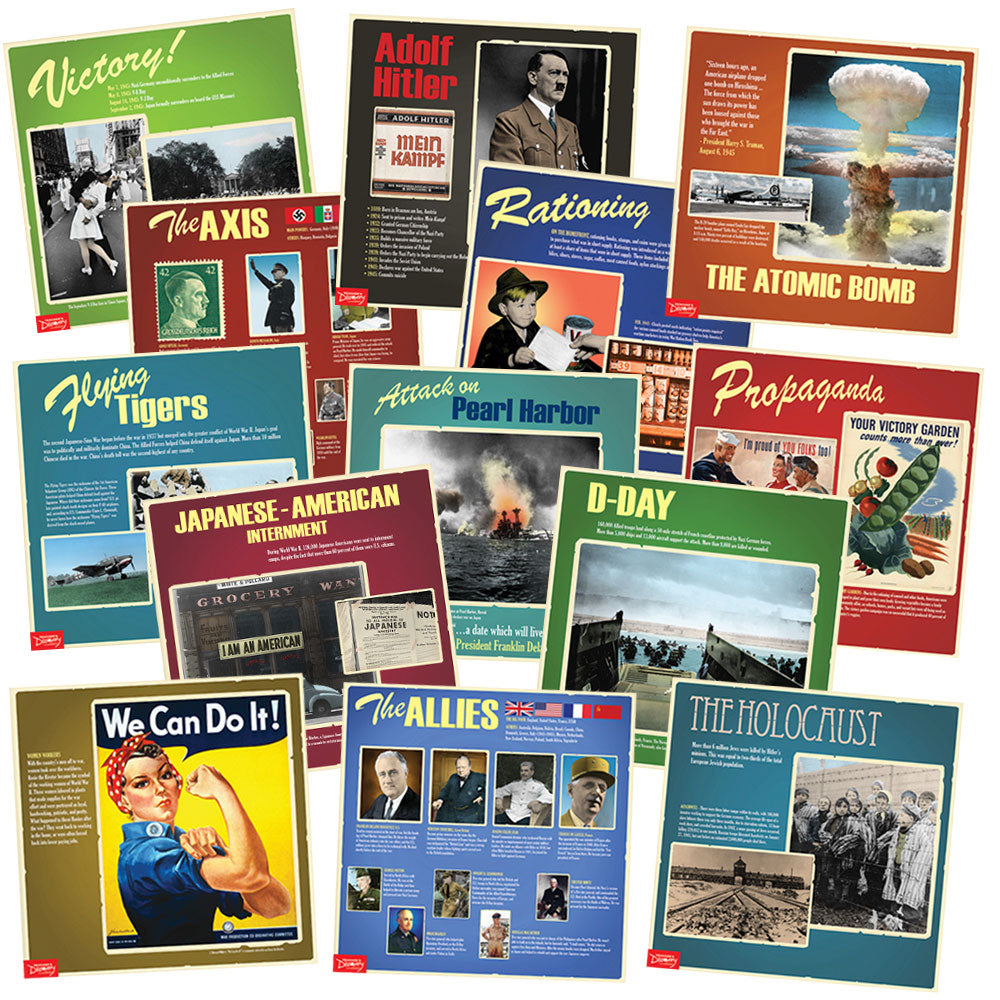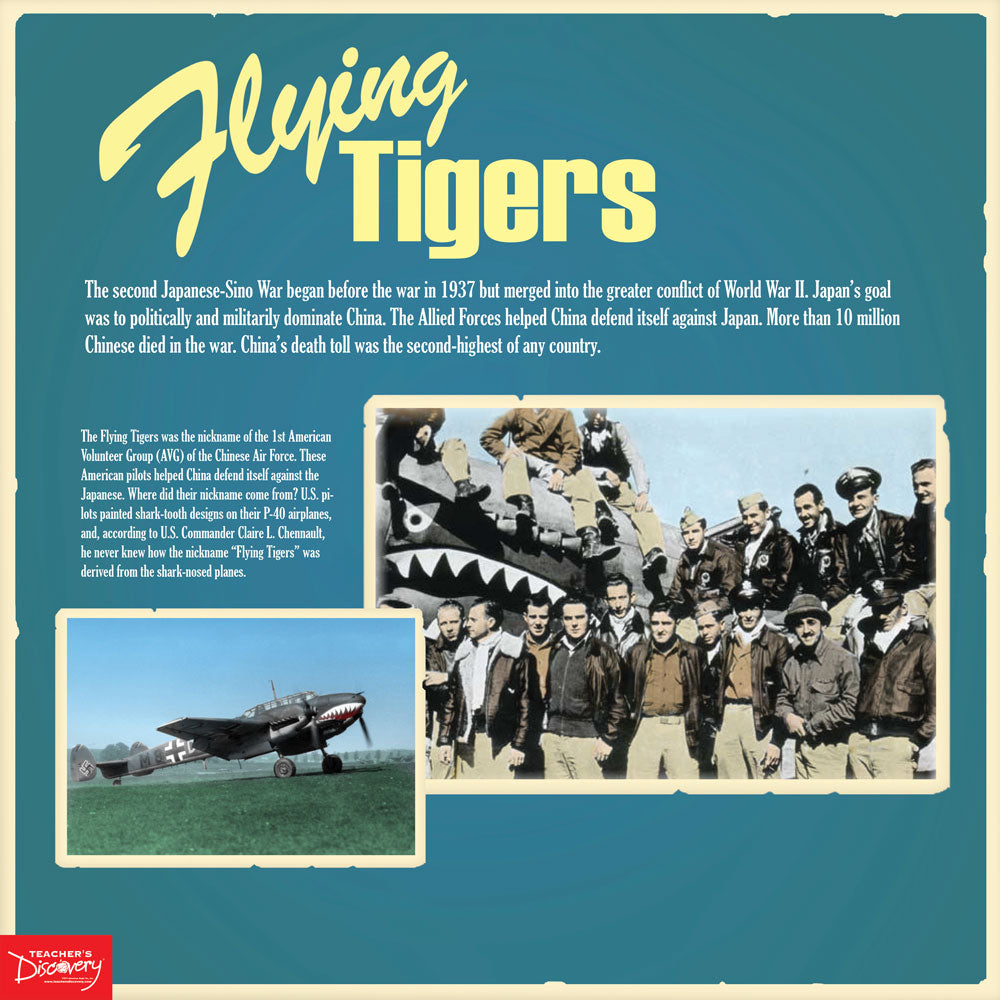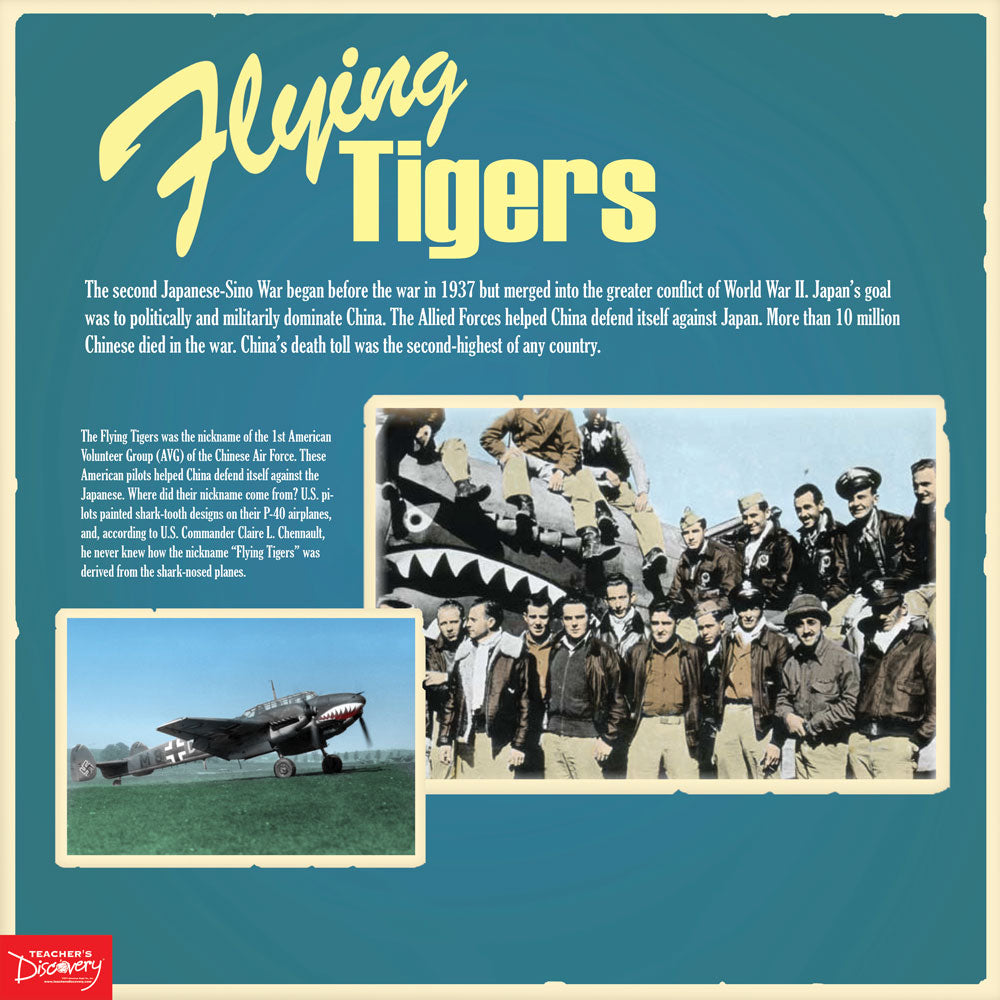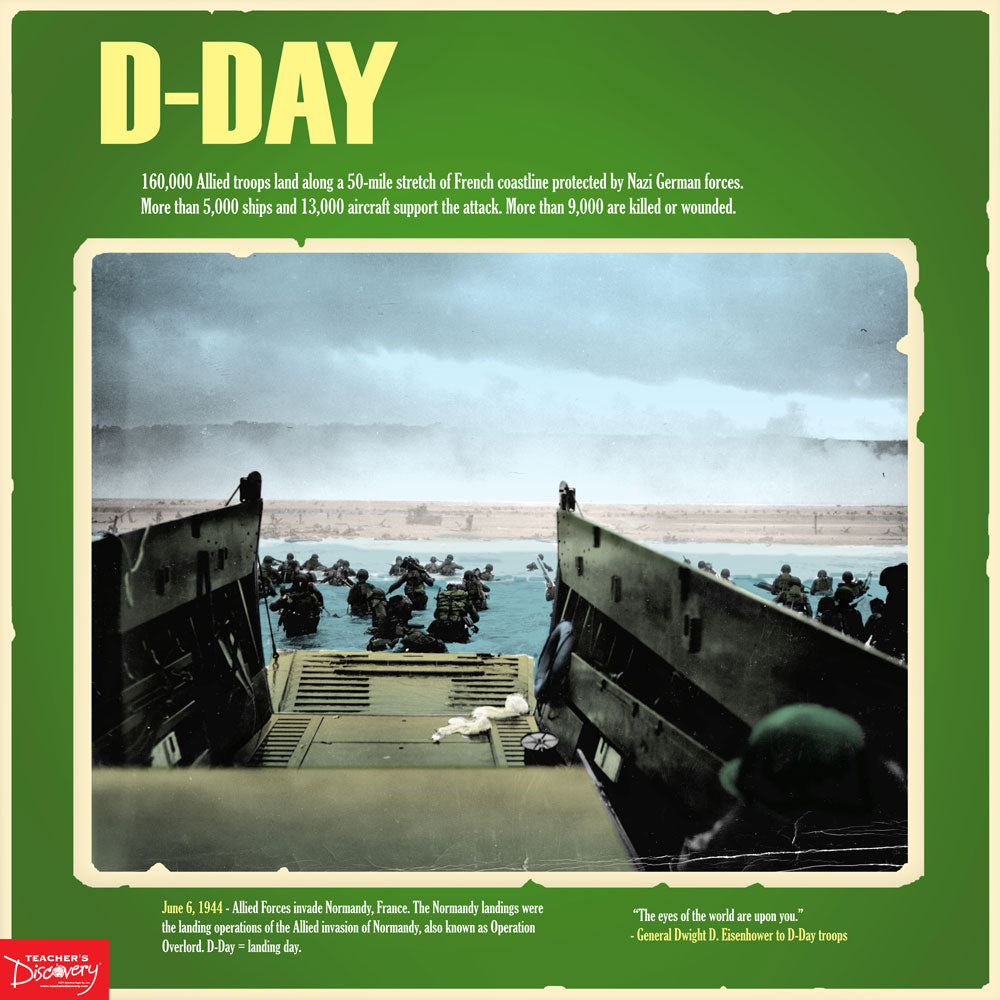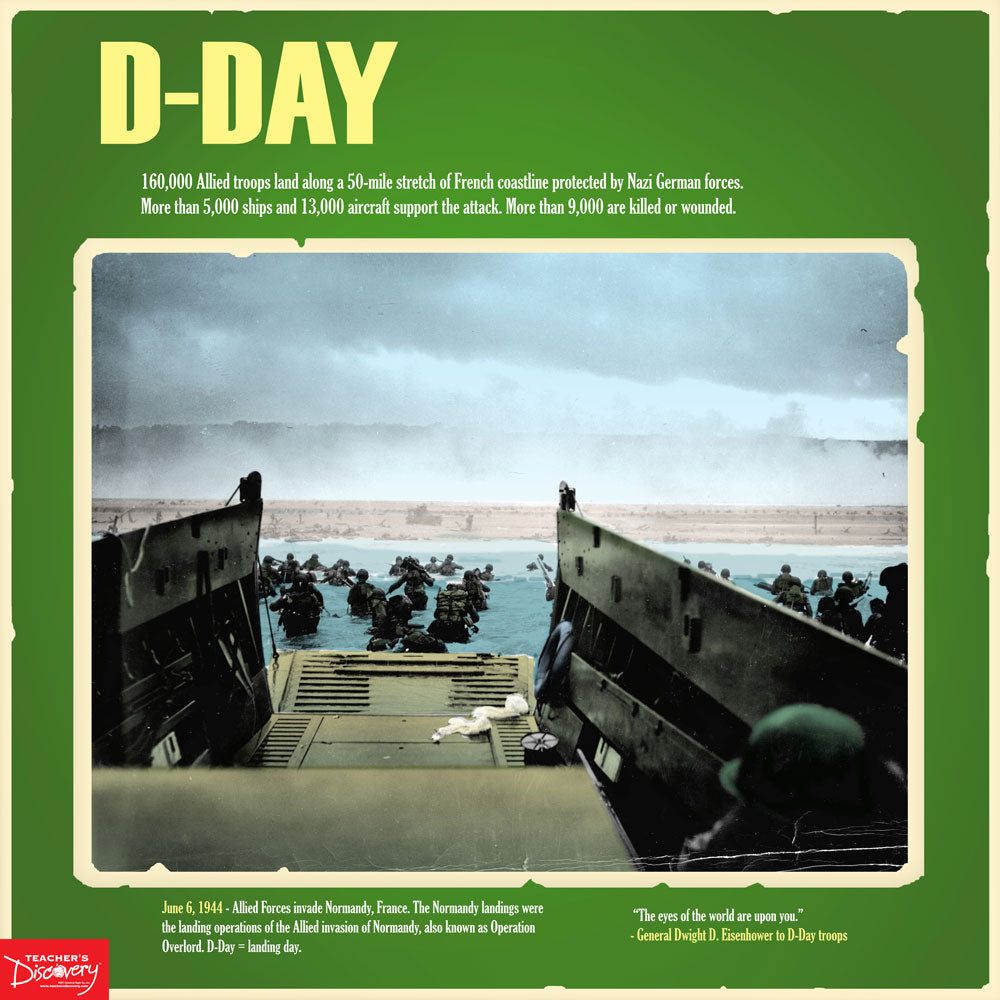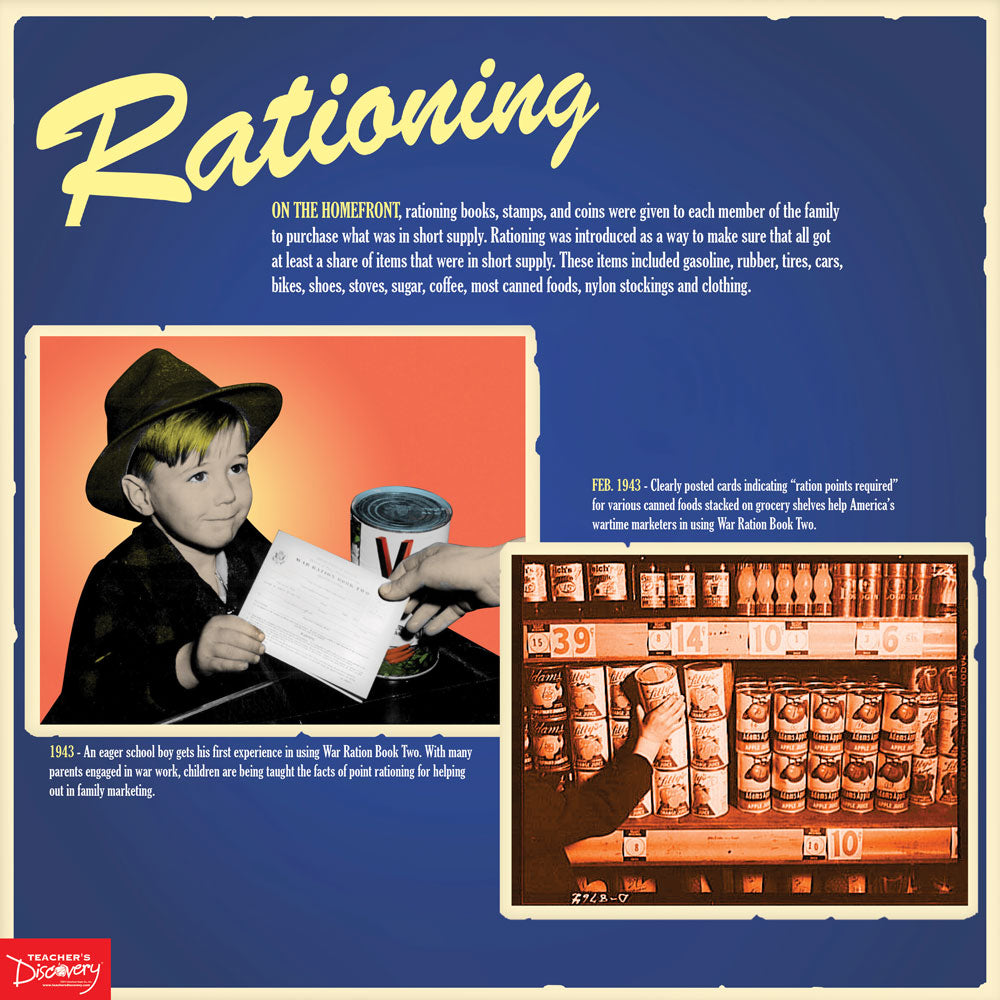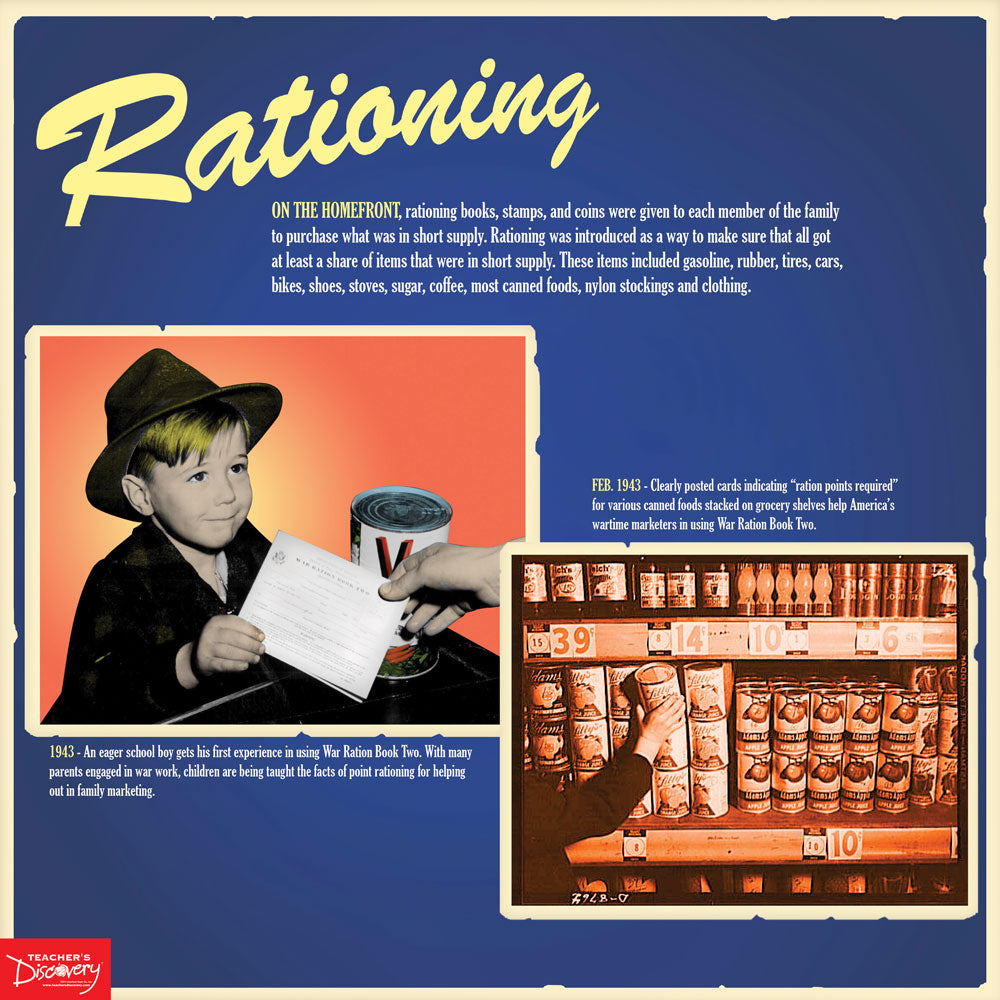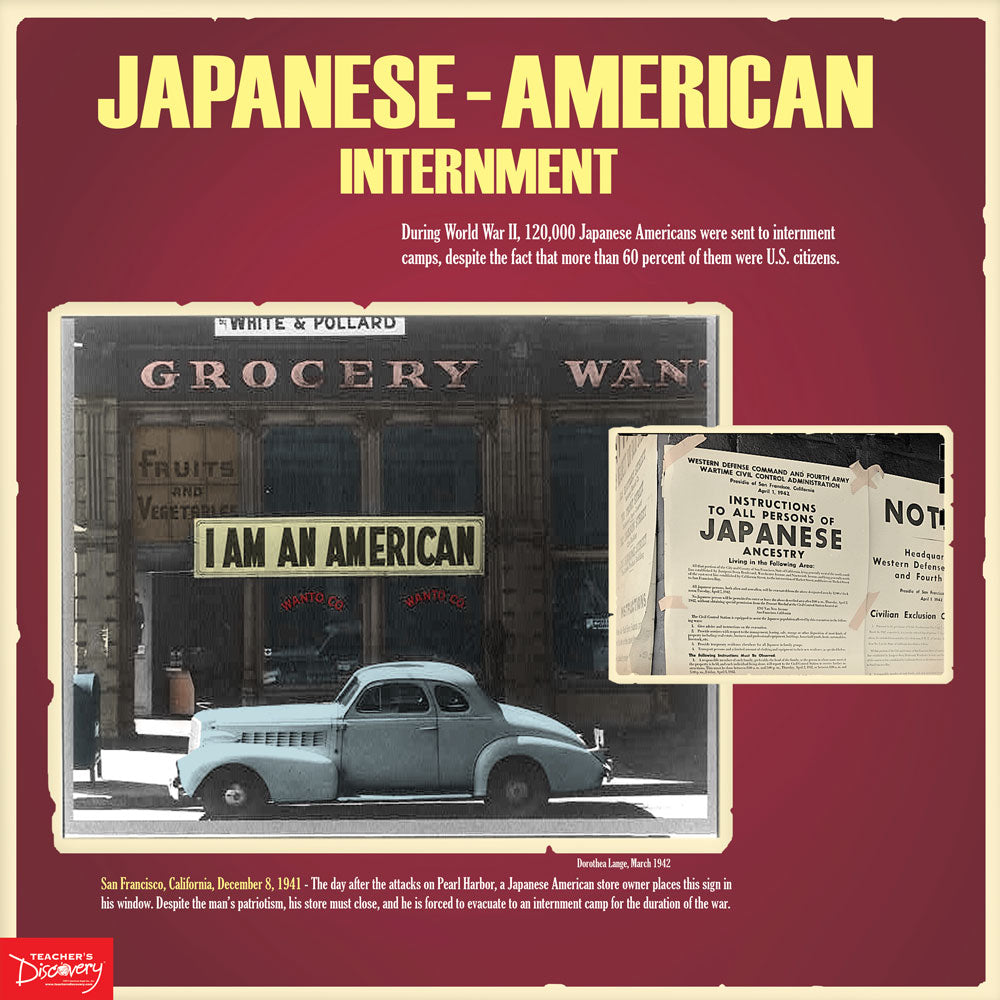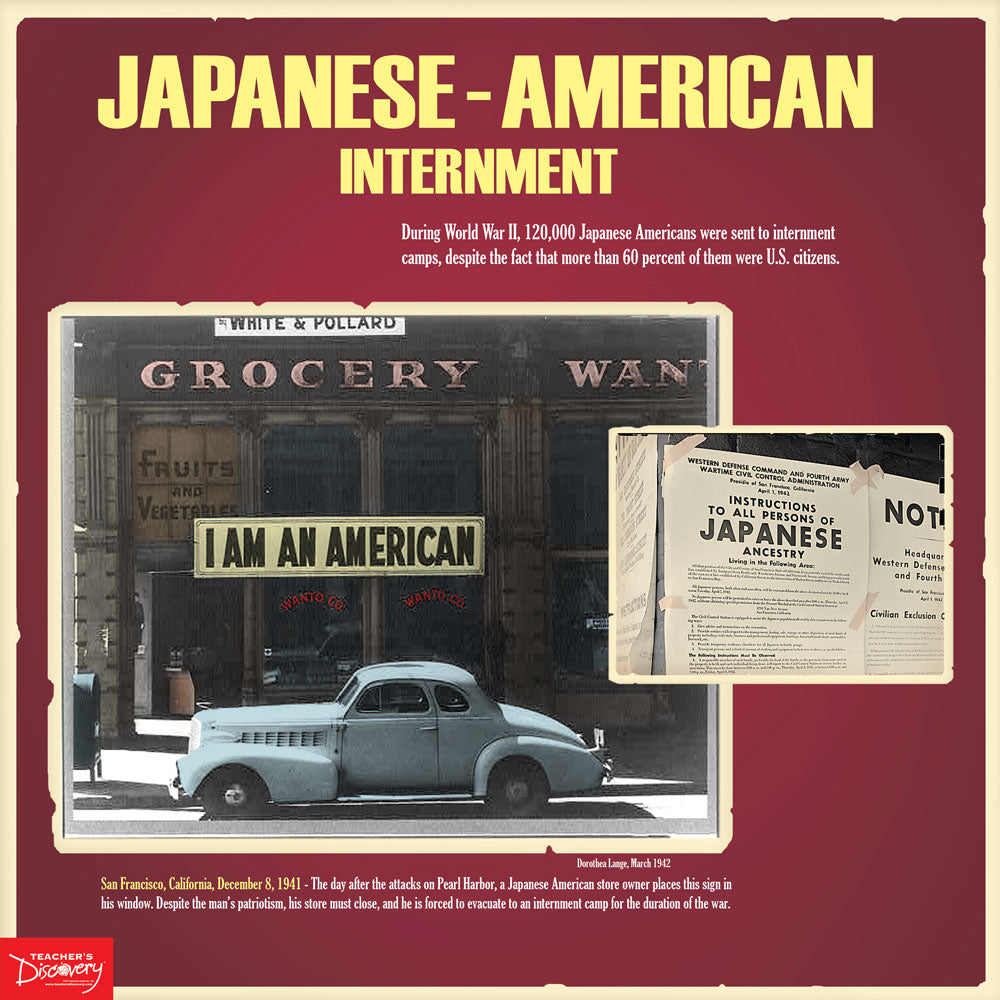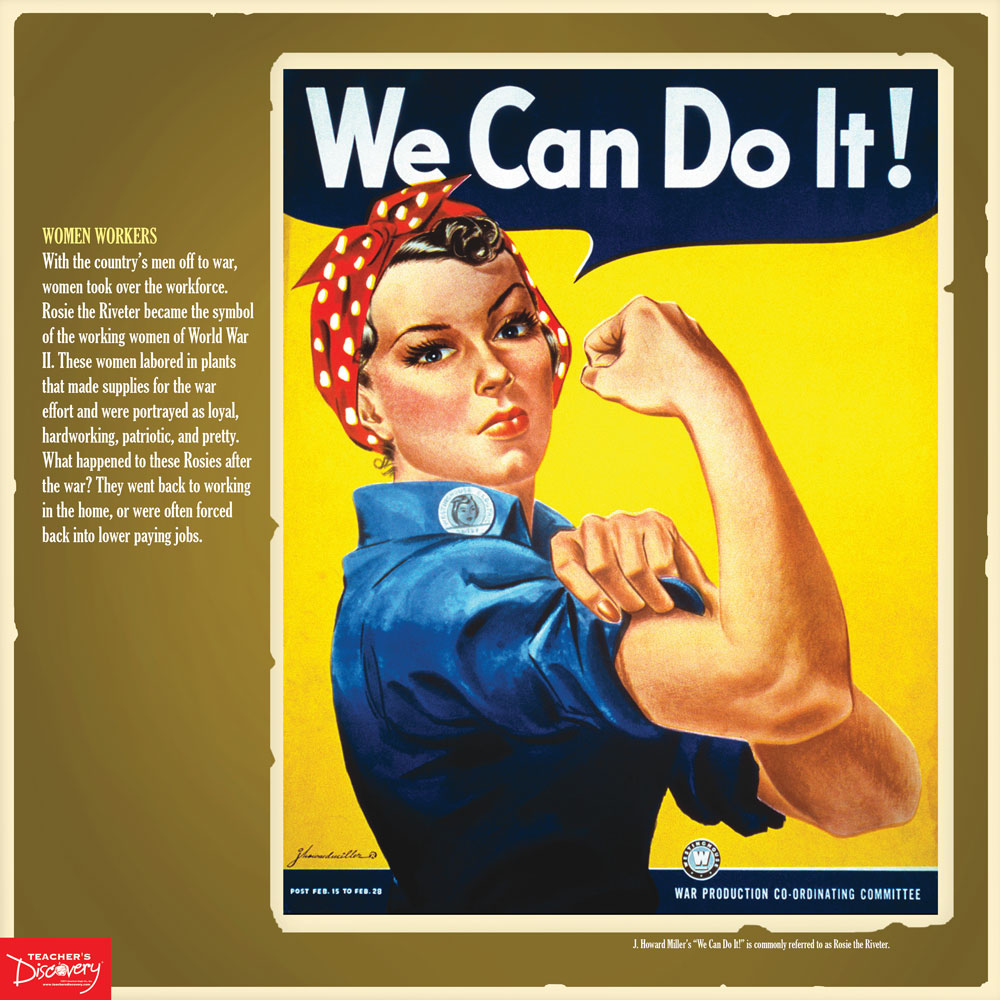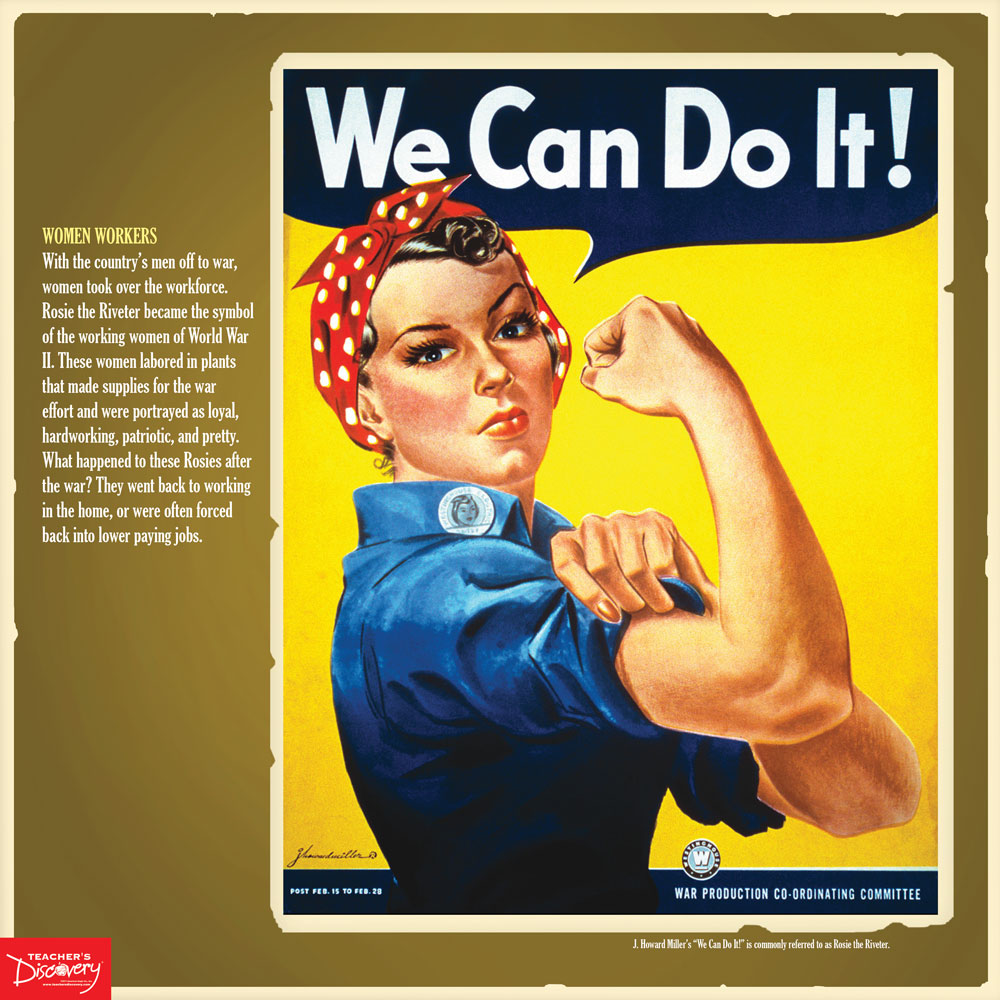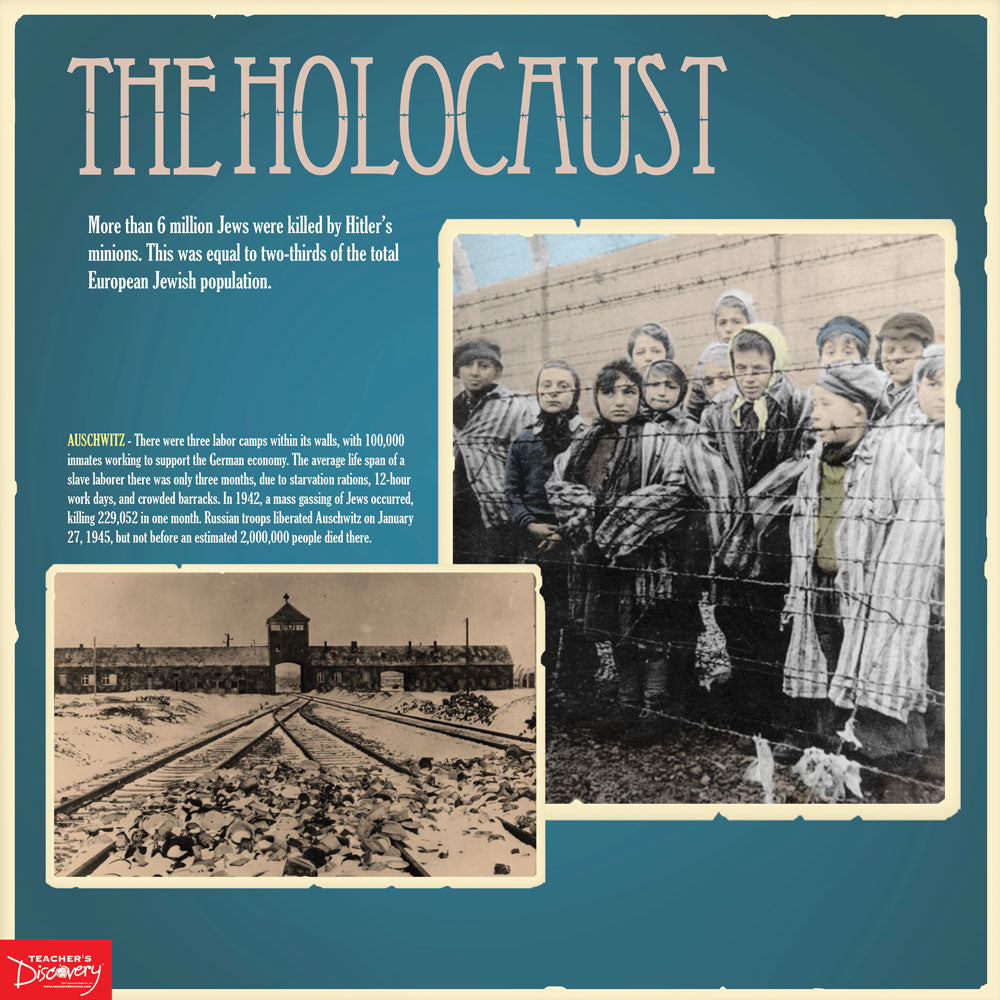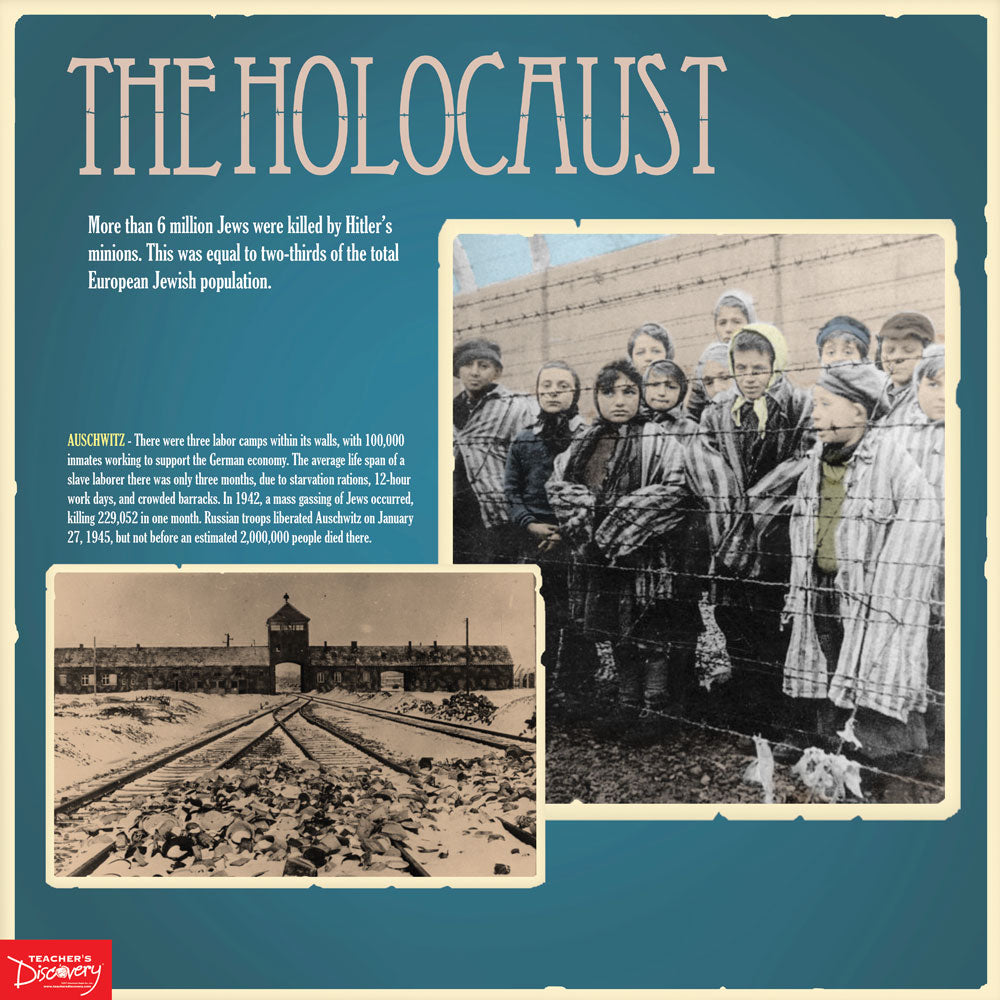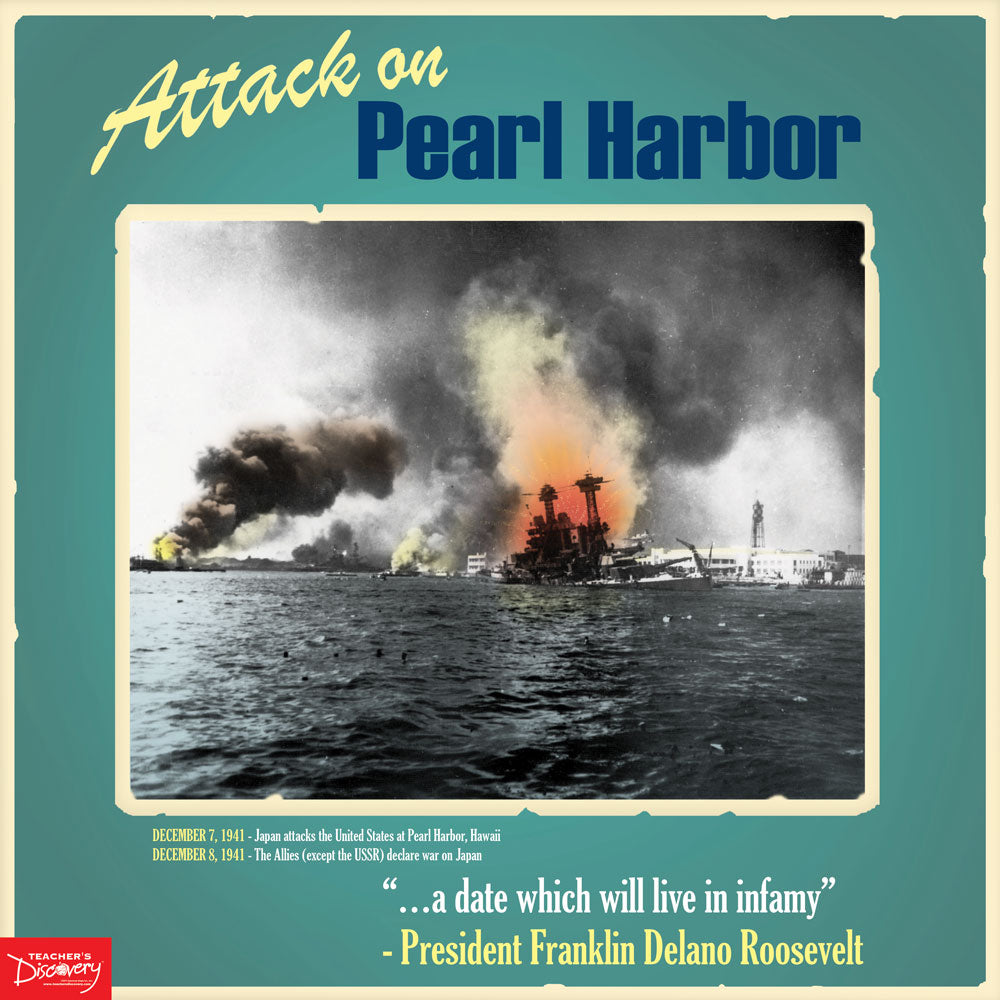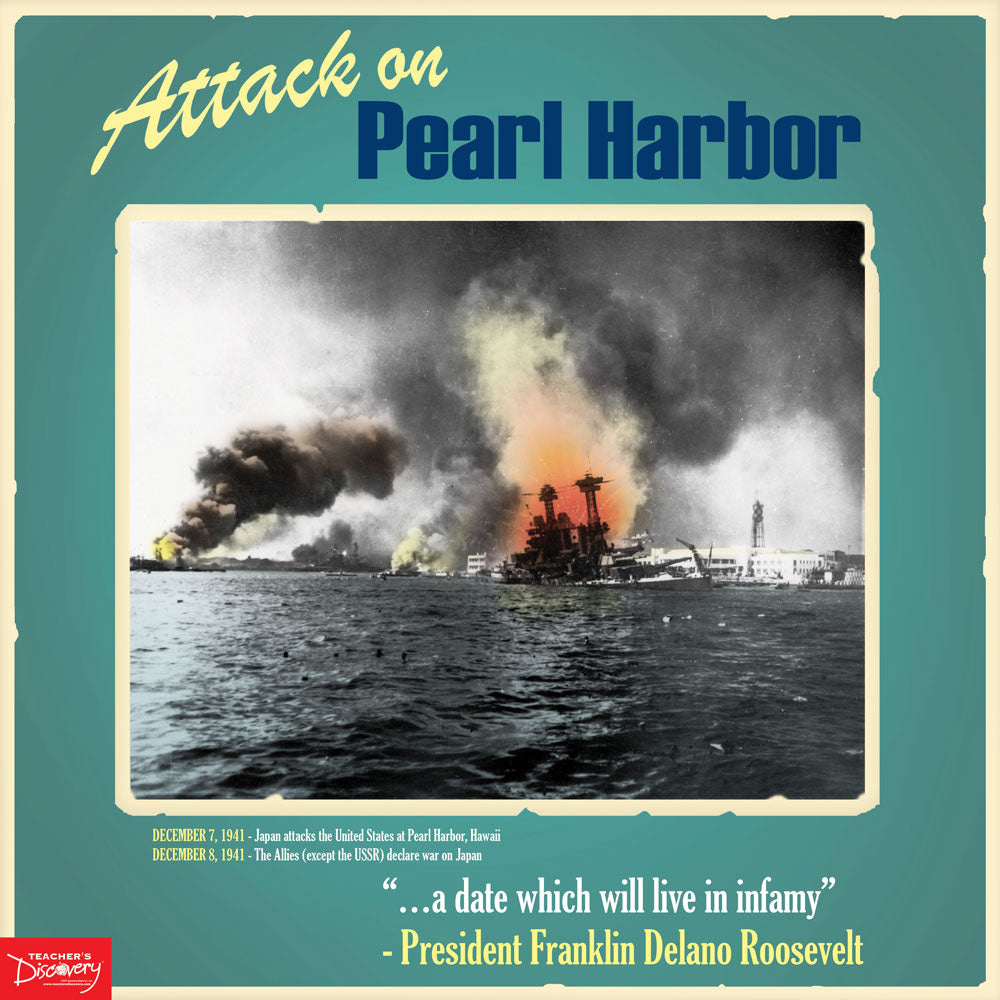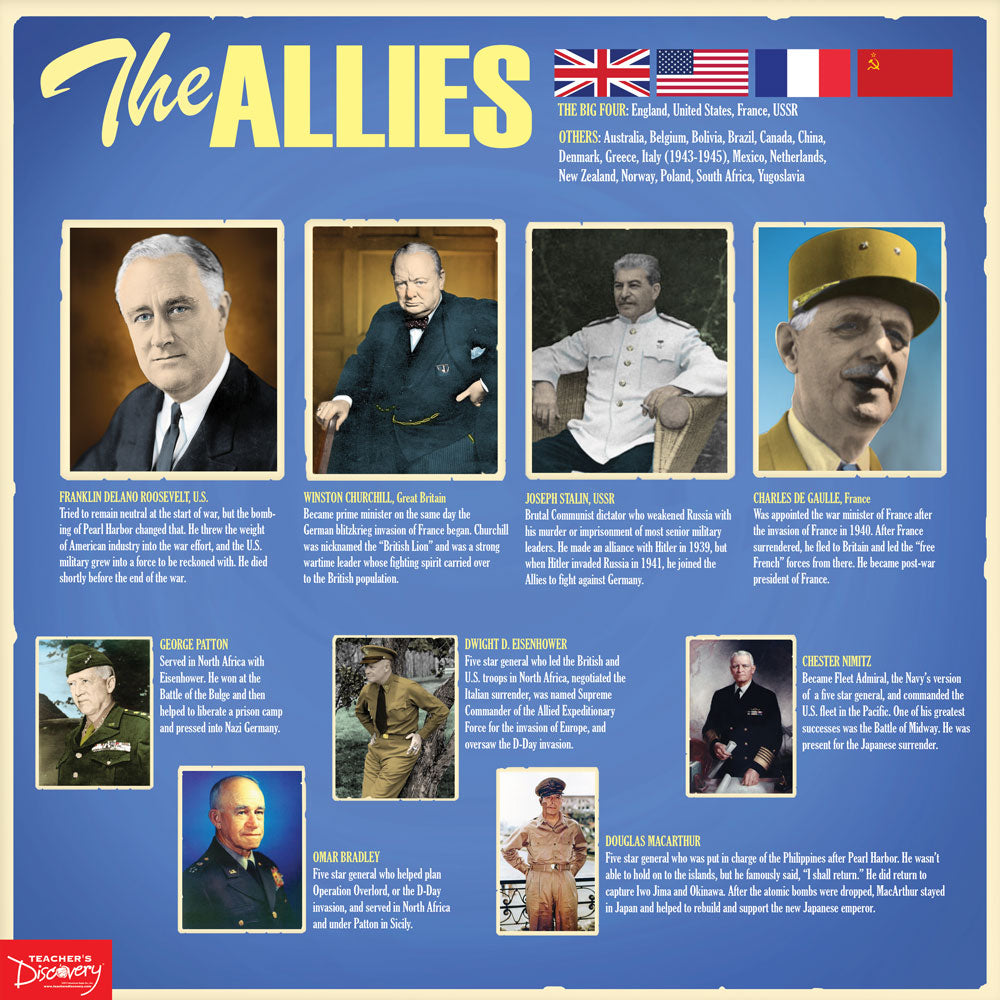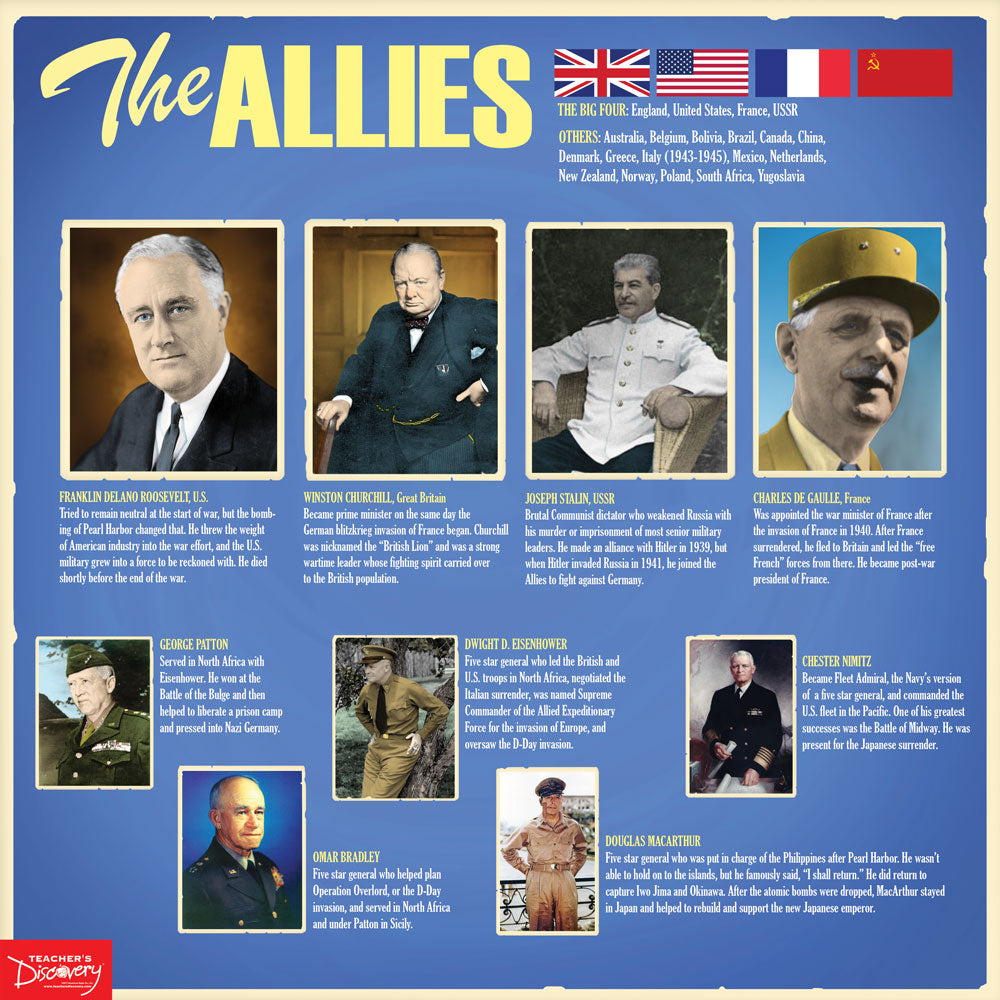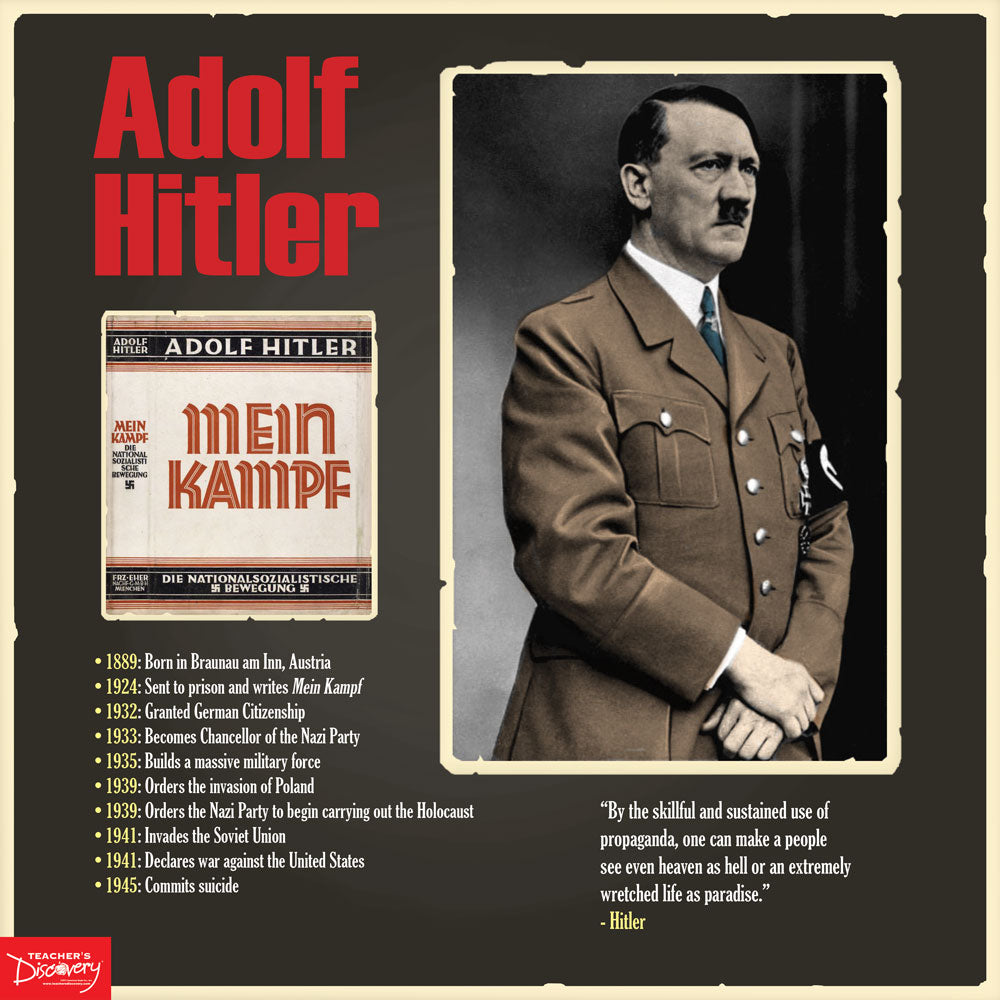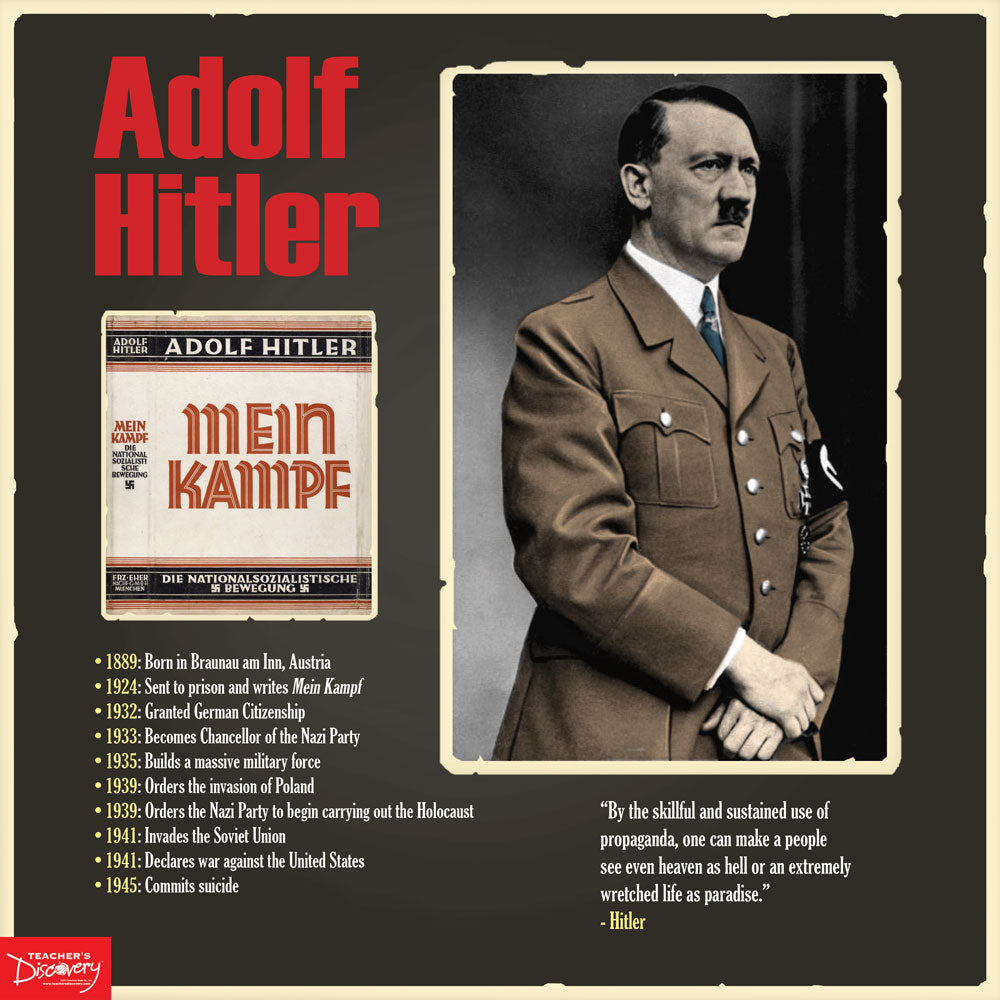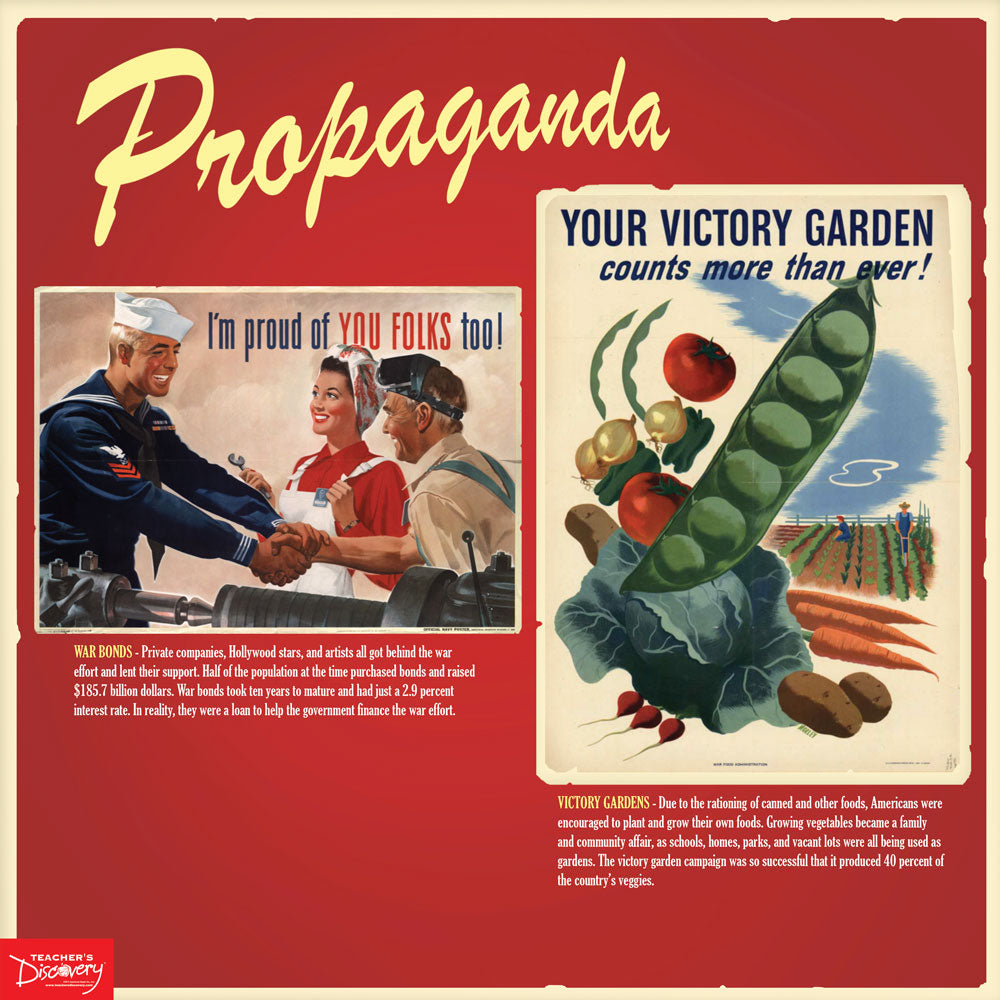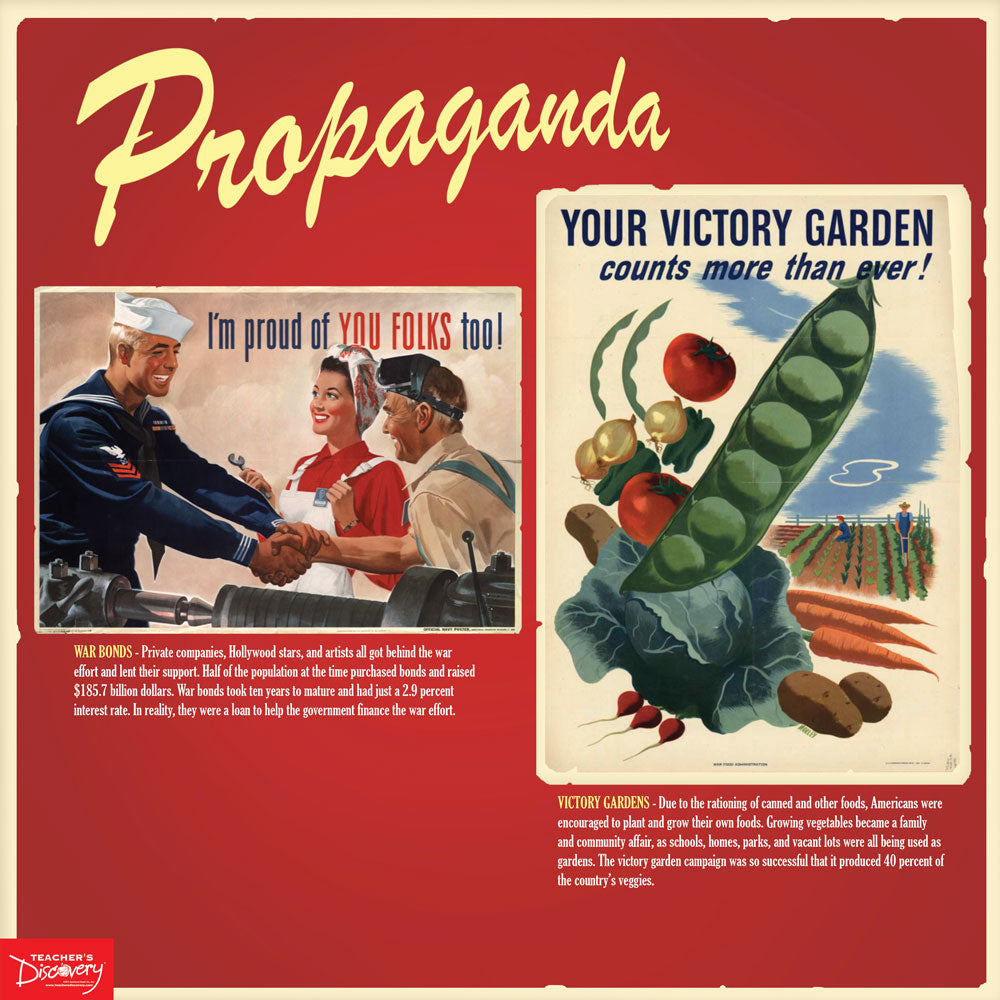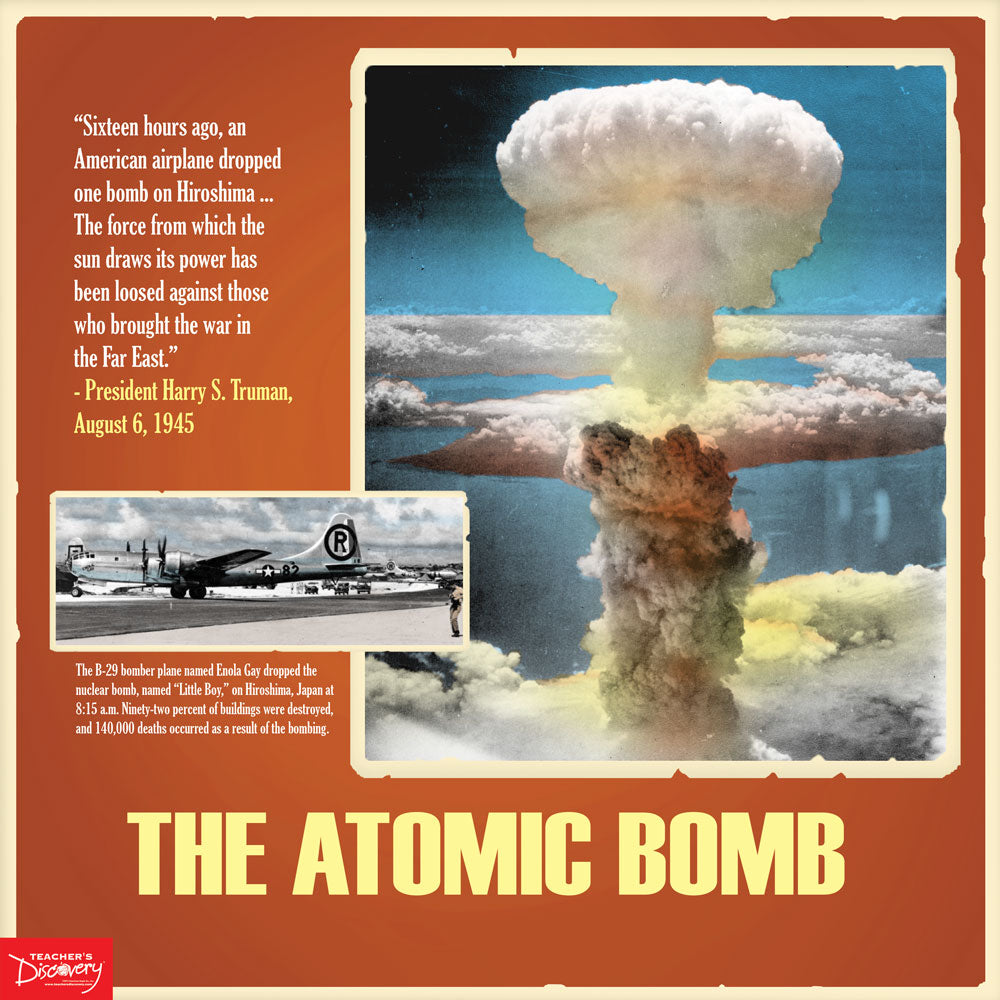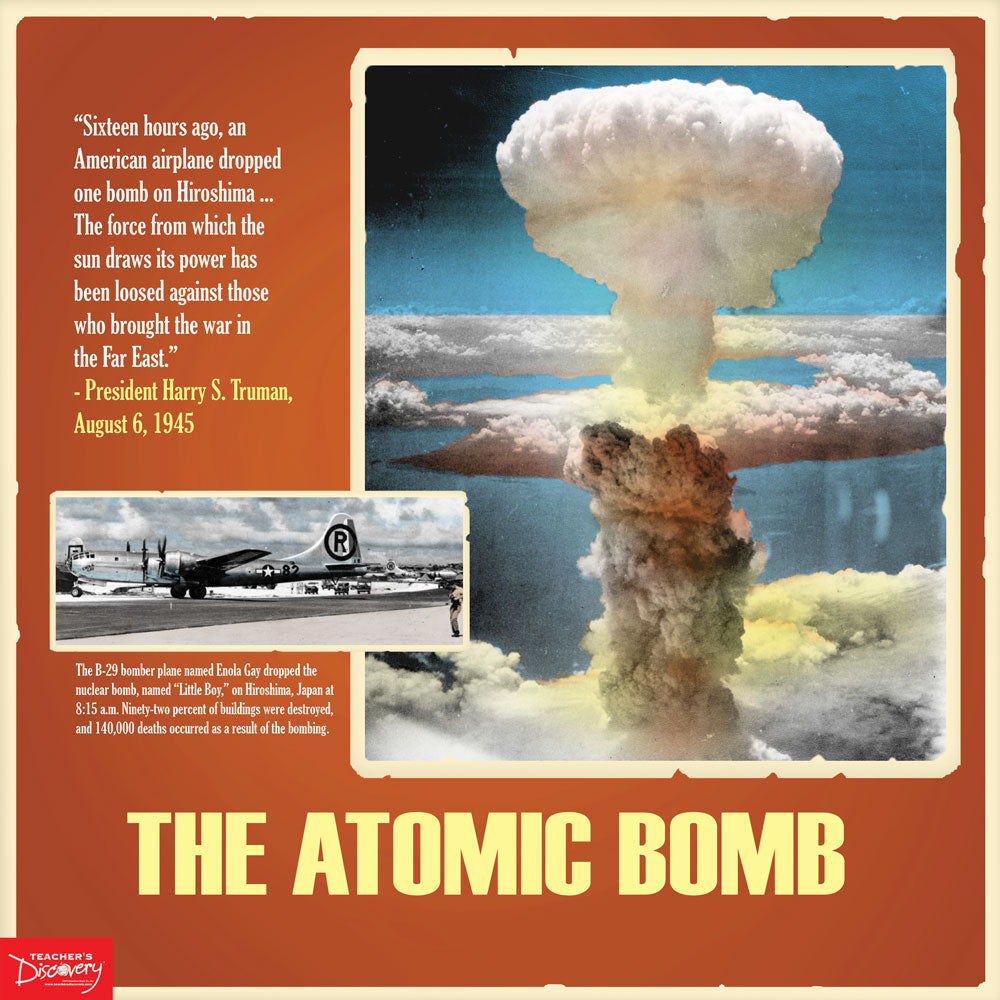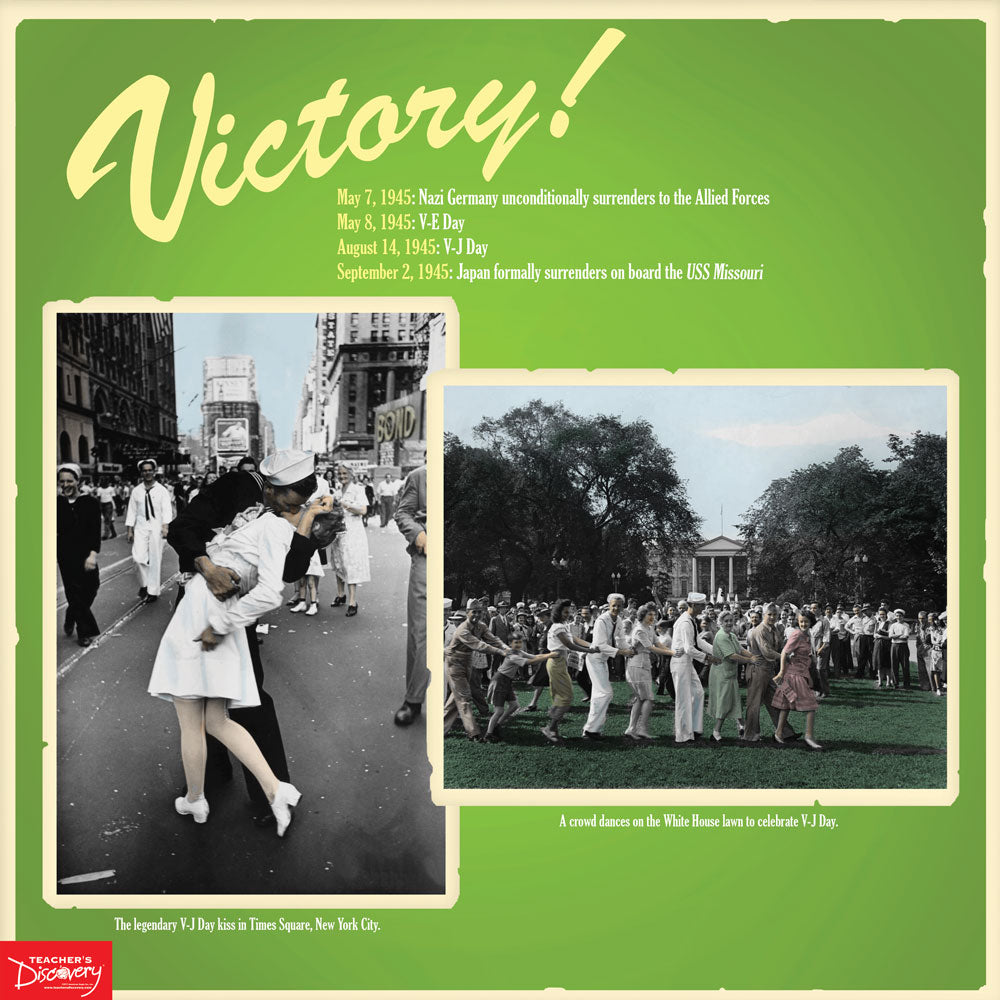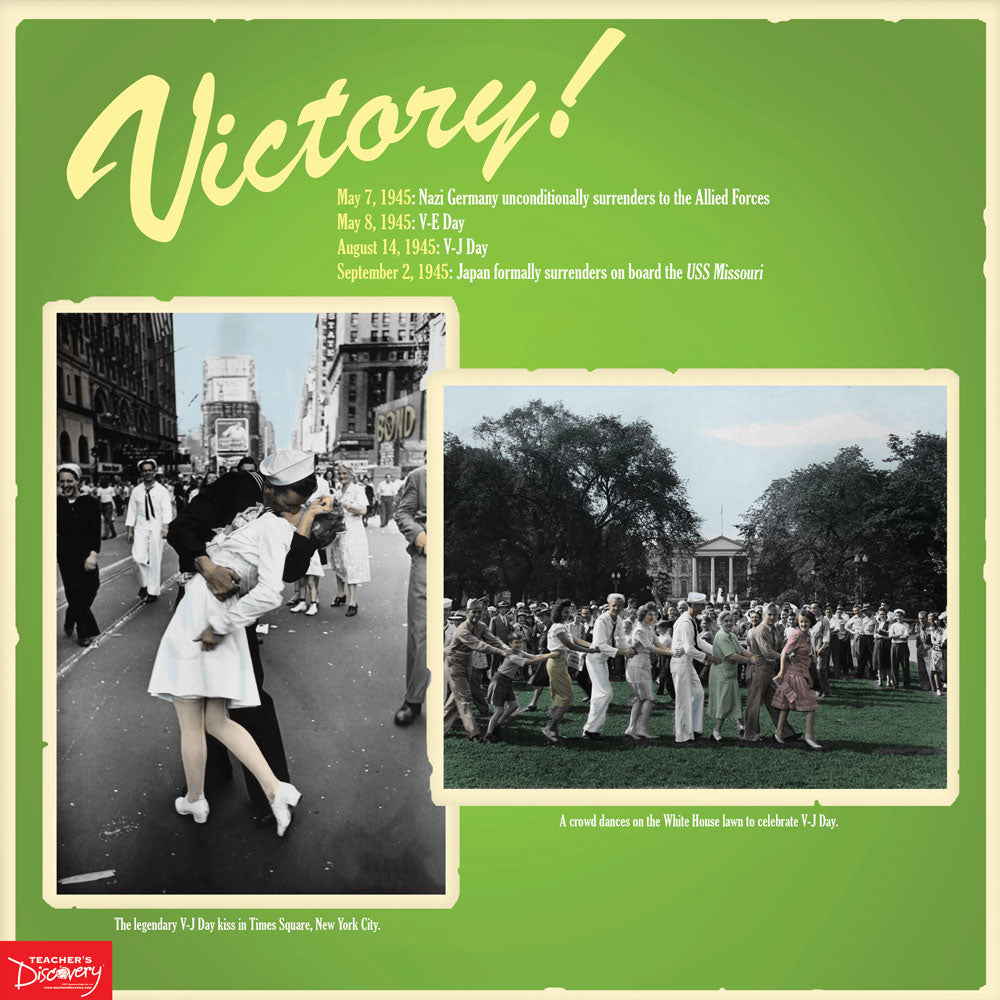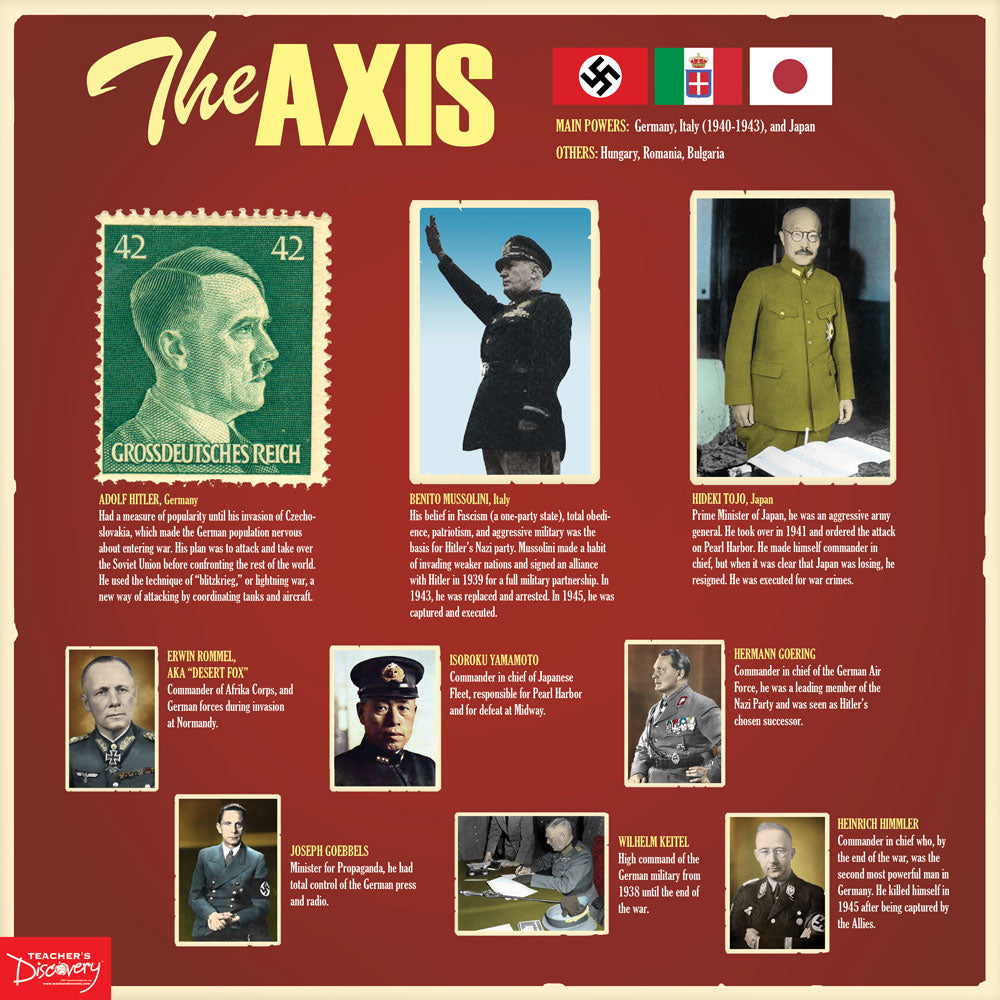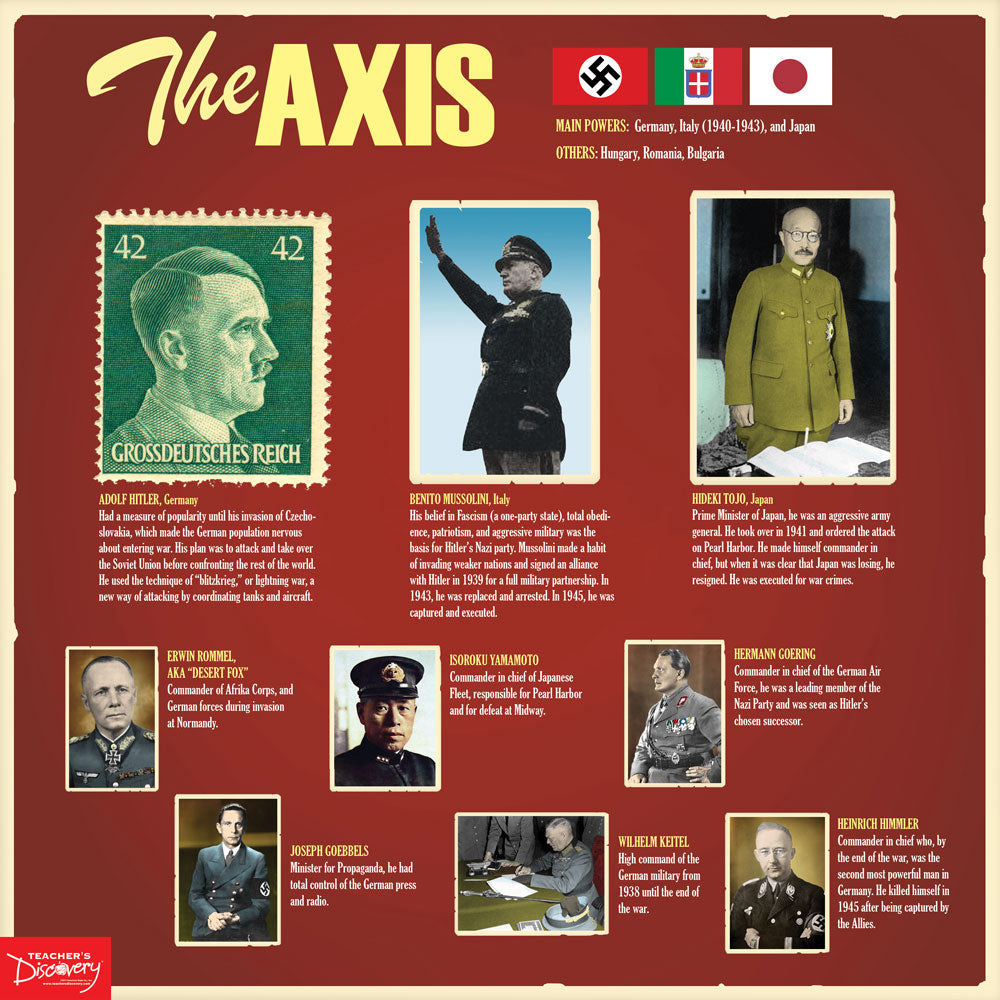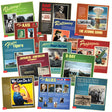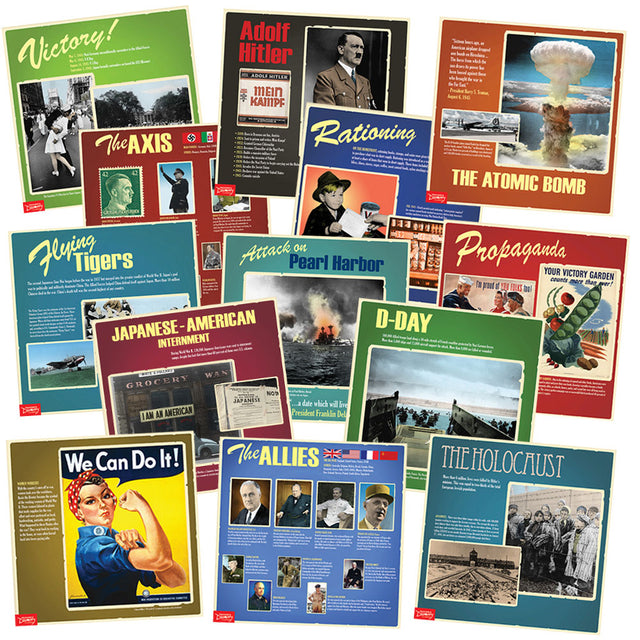- 13 Individual Mini-Posters to Display
- Great Classroom Visual Reference
- Ignite Student Topic Discussions
Give students a new look at World War II with these 13 brightly colored posters. Each of the 13 posters has the feel of the war era and highlights an important event in the war or pop culture of the time. Show students what was going on in the war and on the home front.
©2011. 12 x 12 inches each. Printed on glossy cardstock. Sold only as a set. Middle/high school.
Did you know... The Flying Tigers poster images have a history!
The photograph of Third Squadron Hell's Angels of the American Volunteer Group was taken by R.T. Smith, probably from #47, on May 28, 1942 near the Salween River Gorge. The shot includes #68 flown by Arvid Olson, #46 flown by Bob Prescott, #49 flown by Tom Hayward, #24 flown by Ken Jernstedt, and #74 flown by Link Laughlin. R.T. Smith remembered Bill Reed flying #74, but Ken Jernstedt, the only pilot associated with the shot still living in 2011, says Bill Reed was not in the area at the time. However, there are two photographs taken on the same date during a refueling stop at Yunnan-yi, one taken by Erik Schilling, the other taken by Tom Haywood, that include both Link Laughlin and Bill Reed as well as Ken Jernstedt, Bob Prescott, and Arvid Olson.
R.T. Smith told how the photograph was taken in a letter to Terrill Clements, author of American Volunteer Group Colours and Markings. R.T. seldom took his camera on combat missions, he explained, because "there was no place to stow it in the cramped space of a cockpit, which meant having to carry it on my lap secured only by a leather strap around my neck. Obviously the last thing a fighter pilot needs while frantically maneuvering in a combat situation is a camera flying around in the cockpit....
"It was a beautiful spring day, with a layer of strato-cumulus just above the mountain tops at about ten thousand feet off to our right. We were headed northeast near the Salween River which marked the China-Burma border, and although the air was relatively smooth I soon learned that taking a picture of this type was no easy task. It required trying to fly my plane on a steady course by holding the control stick between my knees, twisting back to my right while holding the camera with both hands, and waiting impatiently for the guys to stop the inevitable 'yo-yo'ing and get into proper echelon formation. There was the added requirement, most important of all, of scanning the surrounding sky every few seconds to make sure no Jap fighters were about to ambush us. The resulting exposure, as I recall, was made about f8 at a 200th of a second."
World War II Mini-Posters Set of 13
World War II Mini-Posters Set of 13 is backordered and will ship as soon as it is back in stock.
Couldn't load pickup availability


CAPTIVATING WWII MINI-POSTERS SET
Description
Description
- 13 Individual Mini-Posters to Display
- Great Classroom Visual Reference
- Ignite Student Topic Discussions
Give students a new look at World War II with these 13 brightly colored posters. Each of the 13 posters has the feel of the war era and highlights an important event in the war or pop culture of the time. Show students what was going on in the war and on the home front.
©2011. 12 x 12 inches each. Printed on glossy cardstock. Sold only as a set. Middle/high school.
Did you know... The Flying Tigers poster images have a history!
The photograph of Third Squadron Hell's Angels of the American Volunteer Group was taken by R.T. Smith, probably from #47, on May 28, 1942 near the Salween River Gorge. The shot includes #68 flown by Arvid Olson, #46 flown by Bob Prescott, #49 flown by Tom Hayward, #24 flown by Ken Jernstedt, and #74 flown by Link Laughlin. R.T. Smith remembered Bill Reed flying #74, but Ken Jernstedt, the only pilot associated with the shot still living in 2011, says Bill Reed was not in the area at the time. However, there are two photographs taken on the same date during a refueling stop at Yunnan-yi, one taken by Erik Schilling, the other taken by Tom Haywood, that include both Link Laughlin and Bill Reed as well as Ken Jernstedt, Bob Prescott, and Arvid Olson.
R.T. Smith told how the photograph was taken in a letter to Terrill Clements, author of American Volunteer Group Colours and Markings. R.T. seldom took his camera on combat missions, he explained, because "there was no place to stow it in the cramped space of a cockpit, which meant having to carry it on my lap secured only by a leather strap around my neck. Obviously the last thing a fighter pilot needs while frantically maneuvering in a combat situation is a camera flying around in the cockpit....
"It was a beautiful spring day, with a layer of strato-cumulus just above the mountain tops at about ten thousand feet off to our right. We were headed northeast near the Salween River which marked the China-Burma border, and although the air was relatively smooth I soon learned that taking a picture of this type was no easy task. It required trying to fly my plane on a steady course by holding the control stick between my knees, twisting back to my right while holding the camera with both hands, and waiting impatiently for the guys to stop the inevitable 'yo-yo'ing and get into proper echelon formation. There was the added requirement, most important of all, of scanning the surrounding sky every few seconds to make sure no Jap fighters were about to ambush us. The resulting exposure, as I recall, was made about f8 at a 200th of a second."
Reviews (0)
Reviews (0)
Payment & Security
Payment methods
Your payment information is processed securely. We do not store credit card details nor have access to your credit card information.

